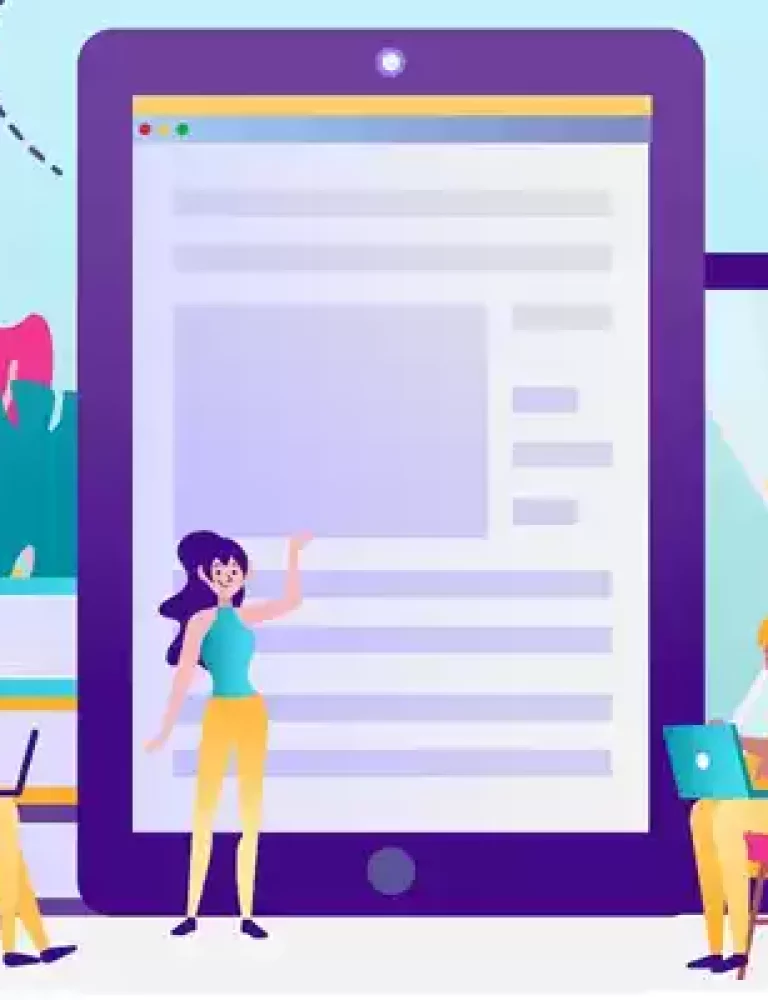What is a Digital Learning Platform?
Gone are the days when learning was restricted to the classroom, with the instructor being the primary source of knowledge. Digital technology has unshackled learning, providing learners a wealth of opportunities to learn what they want to learn, how they want to learn, and where they want to learn with just a few clicks of the mouse.
While the role of the instructor remains undiminished, students today have several resources at their fingertips, allowing them to take control and self-direct their learning.
A digital learning platform can be a learning management system (LMS) or learning content management systems (LCMS). It can also be a virtual classroom tool or a virtual learning environment (VLE).
While each platform varies in function and features, all digital learning platforms can support all types of learning, i.e., online learning, classroom learning, and blended learning.
With the Internet and digital technology becoming an integral aspect of our lives, education too, has gone online, mandating specialized technology solutions to support online learning.
The COVID 19 pandemic has given a major boost to online education. As a result, all educational institutions including schools, colleges, universities and vocational institutions have already adopted or are in the process of adopting a digital learning platform to support learning.
How Do Digital Learning Platforms Foster Overall Academic Growth in Students?
Easy Access to Information
A digital learning platform allows access to a complete library of online resources. The software is structured to organize information in a way that makes it easily accessible to all users. The learning material can be in the form of courses, multimedia content, archives and evaluations. All students can access the information anytime and from anywhere with the help of the Internet and a reading device of their choice, be it a laptop, tablet or a smartphone. Then there is also the option to download material and access for offline use.
Up-to-date content
A digital learning platform allows educational institutions to cost-effectively and instantly update course content or add additional materials and resources, which students can access to support their learning.
Advanced reporting
These innovative digital learning solutions allow the educators to create, personalize, and download reports that provide insights into the learners’ progress, work completion, individual and group progress etc.
The course admins and instructors can use these insights to give individual attention to students, helping them to overcome barriers in their learning journeys. Students can also trace their progress and make efforts to be at par with the rest of the class.
Multimedia learning
With digital learning platforms, you can create multimedia content to engage the learners, immerse them in activities, stimulate interest, bring alive abstract concepts, and provide context to learning.
Multimedia content in the form of video, images, audio and text makes learning fun and entertaining, allowing students to gain new skills and information.
New communication channels
Digital learning platforms take conversations out of bounds of the physical classroom. Students can use platforms such as chat, social media channels and online forums to learn, discuss, and debate in a more collaborative, interactive, and personal learning environment.
They can interact with their teachers, peers and external communities via emails and messages. With communication tools, they can communicate with their classmates right away and resolve their issues as they arise.
24X7 Access to learning resources
Learning never comes to an end with a digital learning platform. Students don’t have to worry if the school library or lab is closed. They can access their resources online 24-hours a day, 365 days a year.
They can even perform science experiments in simulated environments from the comfort of their own space. It has been observed that not all students are active at the same time.
Some find it easier to focus in the evening or at night. Having access to educational resources at all times helps to foster learning even after regular school hours.
Self-directed study
Digital learning platforms enable self-directed learning. In a classroom, you can ask your teacher if you are struggling with a question. However, finding answers yourself is a great feeling.
Self-directed learning is an important aspect of higher education – students find their own answers without being directed by the teacher. Self-directed learning instills in learners skills that will hold them in good stead in their careers.
With technology and knowledge constantly evolving, people have to be constantly on their toes to reskill and upskill. Self-directed study helps students to identify areas they’re good at, and the areas where they might need to work a little harder.
In conclusion
As technology makes in-roads, it becomes crucial for educational institutions to harness it to their advantage. Schools and higher education institutions are increasingly adopting digital learning platforms to support student learning and foster their academic growth. Cloud-based digital learning platforms provide 24×7 access to learning resources. They can even download the course content for offline use. These platforms also offer a range of communication tools for students to communicate with instructors and peers.
For instance, they can post their queries on a forum and invite a response from both teachers and fellow students. Rather than wait for the next day to ask a question, they can use chat or email their instructors for a more immediate response. Then there are other tools and features that allow them to collaborate and work as a team. Students can also self-direct their studies, and in the process identify weak areas and strong points.
Finally, digital learning platforms provide them hands-on experience in using technology, a skill that will hold them in good stead when they seek careers in the real world.
To know more, please write to us at kitaboo@hurix.com
Suggested Reads:
Discover How An Ebook Conversion, Publishing & Distribution Platform Can Help You
Kitaboo is a cloud-based content platform to create-publish & securely distribute interactive mobile-ready ebooks.
You May Also Like
-
Customizable eBook Reader App for Your Brand
Blog,Digital Publishing,eBook solution / March 22, 2024
-
Top 5 Features of Interactive eBooks in 2024
Blog,Digital Publishing,eBook solution / February 29, 2024







